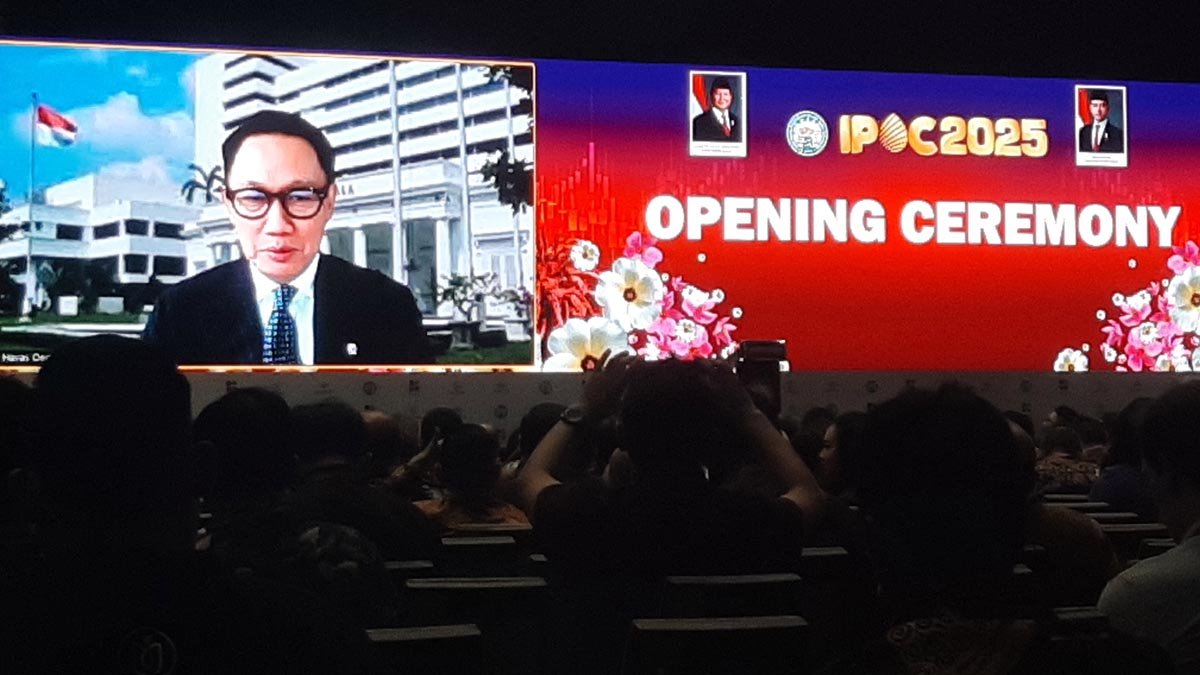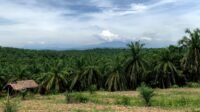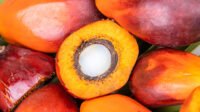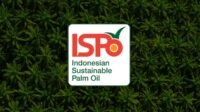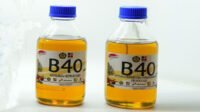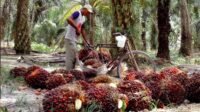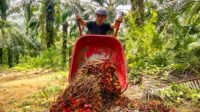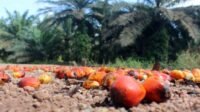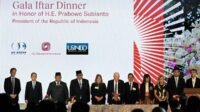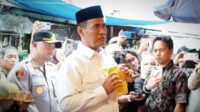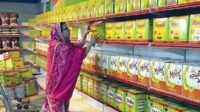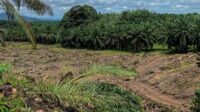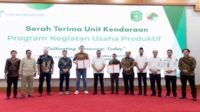PALMOILMAGAZINE, BALI — Indonesia’s Deputy Minister of Foreign Affairs, Arif Havas Oegroseno, highlighted global challenges facing the country’s palm oil industry during a panel session at the Indonesian Palm Oil Conference (IPOC) 2025 in Bali. In his presentation titled “Trumpt Reciprocal Tariff, Market Access and Industry Competitiveness and EUDR Implementation,” Havas explained that escalating geopolitical tensions and shifting global economic policies are increasingly influencing the business climate and competitiveness of Indonesia’s palm oil sector.
According to him, the United States’ reciprocal tariff policy and the growing trend of economic and trade weaponization have become a new reality in the global economy. “Economic policy is no longer neutral. It is now used as a political instrument and a tool for bilateral pressure. This makes geopolitical uncertainty a key factor in business decision-making,” he told IPOC 2025 participants.
Market Diversification and Economic Diplomacy
To address these global dynamics, Havas emphasized the importance of market diversification and trade risk mitigation. Indonesia, he said, cannot rely solely on traditional markets such as the European Union or the United States. The government is now expanding access to new regions like Latin America and Africa, while also strengthening trade relations with India and the Middle East.
“The expansion into Latin America has opened up potential trade deals worth around USD 500 billion. In Africa, Indonesia is exploring free trade partnerships with South Africa and Nigeria. These are part of our economic diplomacy strategy to strengthen the position of Indonesian palm oil in the global market,” he explained.
Strengthening Competitiveness Through Downstream Development and Innovation
In terms of competitiveness, Havas noted that the strength of Indonesia’s palm oil industry depends not only on production volume, but also on cost efficiency, downstream integration, and sustainability reputation. He stressed that the government’s downstream development policy and the adoption of high-yield, innovative palm varieties are vital steps to ensure the industry remains globally competitive.
“Sustainability is not just a demand—it is a necessity. In international law, sustainability stands on three pillars: economic growth, social justice, and environmental protection. These three must progress in harmony,” said Havas.
EUDR and the Importance of Fair Partnership
Havas also addressed the implementation of the European Union Deforestation Regulation (EUDR), which has been a major concern for palm oil stakeholders. He asserted that the regulation must be implemented fairly, proportionally, and based on partnership, rather than through discriminatory measures.
He proposed strengthening the Licensing Information Unit (LIU) as an official communication hub between Indonesia and the European Union to verify the legality, origin, and sustainability of palm oil products. This system, he explained, would ensure transparency without compromising national data sovereignty.
“We already have valuable experience through the FLEGT–VPA mechanism developed with the EU in the forestry sector. A similar approach could serve as a practical solution for EUDR implementation,” Havas said.
Building a Fairer Global Trade Governance
Concluding his remarks, Deputy Minister Havas emphasized that Indonesia remains ready to cooperate with all international trade partners based on fairness, equality, and mutual respect. He expressed optimism that strong collaboration between the government, business actors, and partner countries would further strengthen Indonesia’s role in the global supply chain.
“Indonesia’s palm oil industry already has a robust sustainability system. What we need now is a global partnership built on fairness and proportionality. That is the key to achieving a more equitable and just global trade governance,” he concluded.
Don’t miss out! Stay up to date with the latest IPOC 2025 news at Palmoilmagazine.com. (P3)

